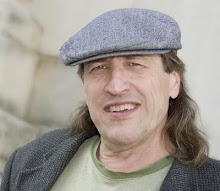October 19, 1980
The sun glistens across the river from the falls to the foot
of the bridge – so bright it stings my eyes and makes me look elsewhere, bright
but not warm enough to remove the chill of the wind last night’s storm left or restore
the leaves left homeless under the relentless rain.
Gulls cruise the blue sky eyeing the rain elevated shores,
the grass near the top still glistening from the west even as the water
recedes, testifying to the onslaught the river suffered.
It always recovers and its beleaguered citizens always
return, geese floating near my side, ducks in the shallows on the Clifton side. Some even
linger near the lip of the falls, floating near the glistening edge as they
hunt for food.
None of my human friends share the river with me today – no
fishing lines spread web-like from the sides of the bridge, no old men gathered
behind the Service Diner to smoke and gossip.
Colored leaves continue to flutter from the tree limbs with
each gust – red and yellow snow destined to turn brown after a time in the
bright, bleaching light. The most solid green is fixed on the far side where a
stand of pines pokes up from some hill well beyond the river, a boasting from a
breed less subject to the fickle whims of the seasons.
For some reason, I ache for winter this year, like I have
rarely done before, perhaps because I hope real snow will wash away the summer
dust lack of rain left inside of me.
I am always amazes how affected I am by this place, feeling
the pain of this river and the changes it undergoes, feeling it flow through me
as if my blood, my feet still moist from the first time I set food here at
three or four or five, not this part, but that curved part that circles the
City of Paterson like a crown, me asking my mother at the time why the water
was brown and not blue, and she telling me simply: “That’s the way it is,”
while I still ask the same question all these years later.

















